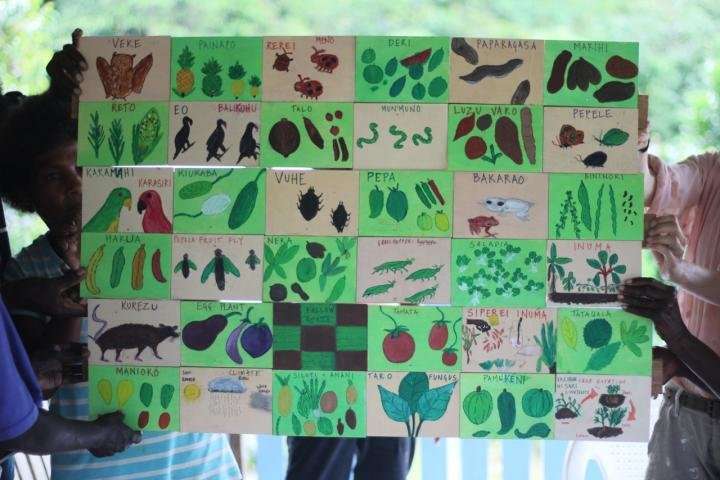Rethinking well-being and sustainability measurements from local to global scales

A new study suggests that standard ways of measuring well-being and sustainability in communities used by global organizations may be missing critical information and could lead to missteps in management actions. The paper, published today in the journal Nature Ecology & Evolution by a team of 40 scientists, policy-makers and on-the-ground practitioners, suggests alternative and complementary approaches that use indicators grounded in the values of a particular community.
"Well-being is a universally applicable concept, yet because it can mean so many different things to different people, pinning down an exact definition is difficult," said lead author Eleanor Sterling, who is the Jaffe Chief Conservation Scientist in the American Museum of Natural History's Center for Biodiversity and Conservation. "This paper is the result of years of collaboration among people from diverse disciplines and cultures to investigate methods and approaches to creating place-based indicators of well-being relevant for local communities."
The study grew out of work the authors undertook in the Pacific, where scientists met with community members and local, regional, and national government experts to examine issues such as food security, access to fresh water, quality education, sustainable tourism, and protection of marine and terrestrial resources.
The authors approached the study with the knowledge that choosing indicators is a subjective process and that the decisions around which indicators are measured, and how they are measured, can impact management approaches and outcomes. For instance, a common way to assess the sustainability of marine resources is to measure marine protected area (MPA) coverage. This metric alone, however, does not account for the appropriateness of MPA location, design, or management effectiveness and may even exclude sustainably managed areas not formally considered as MPAs. The paper suggests capturing these other crucial aspects of marine management, including customary management systems.

Another example of the disconnect between locally appropriate indicators and those used by many large organizations is the issue of food security. One way some global organizations assess food security is to interview community members with a series of standardized questions, which includes the following: "During the last 12 months, was there a time when your household ran out of food because of a lack of money or other resources?" However, the researchers found that questions about food security that are framed around vulnerability may be inappropriate and not generate accurate data due to a strong cultural reluctance to admit to food shortages because of deep obligation felt by some communities to share food with their families and guests. Studies suggest that more appropriate questions could focus on resilience, by looking at the percentage of households that report having a stable food supply throughout the year and the average length of time for which households in the community have an emergency food supply after a disaster.
"This paper distills our thinking around how to approach environmental challenges in a way that is responsible, effective, and ethical," Sterling said. "We discuss why inclusion of local peoples' knowledges and myriad perspectives is crucial to developing appropriate indicators and management approaches for the intricately linked concepts of sustainability and well-being, and suggest ways to bridge between these locally derived solutions and broader scale efforts."

More information: Eleanor J. Sterling et al, Biocultural approaches to well-being and sustainability indicators across scales, Nature Ecology & Evolution (2017). DOI: 10.1038/s41559-017-0349-6
Journal information: Nature Ecology & Evolution
Provided by American Museum of Natural History



















